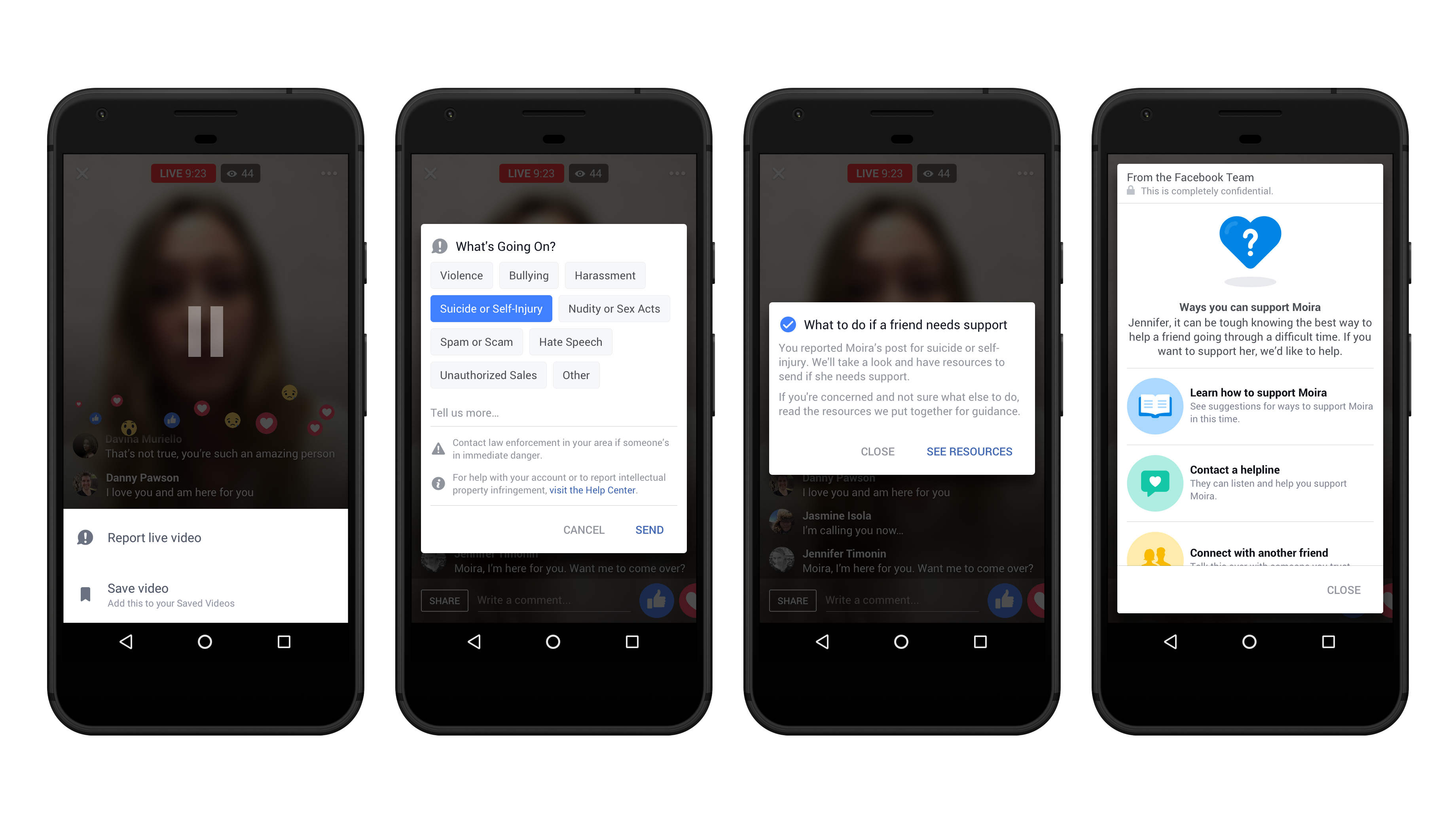Facebook recently added new features to its Facebook Live and Messenger platforms, but instead of reaction emojis, these new functions could help save lives.
On March 1, Facebook announced the expansion of its suicide prevention and crisis assistance tools to its Live and Messenger platforms. Now, Facebook friends will be able to report live videos of friends in potential self-harm situations and users contemplating suicide can immediately connect with crisis support services via Messenger.
The change comes after several teenagers and young adults have live streamed their suicides on Facebook Live and similar streaming services in recent months. News reports show similar trends abroad.
According to the World Health Organization, suicide is the second leading cause of death for 15- to 29-year-olds globally, and more than 800,000 people commit suicide annually. That’s equivalent to one suicide roughly every 40 seconds, according to a 2014 WHO report.
In a Feb. 16 post on his personal profile, company CEO Mark Zuckerberg said Facebook is in a unique position to provide communities with the social infrastructure necessary to identify problems and prevent harm by giving individuals the tools needed to save lives. In a March 1 post, Zuckerberg cited community safety and suicide prevention as a key company goal.
“Keeping our community safe is an important part of our mission, and an important part of how we’ll measure our progress going forward,” Zuckerberg said. “There’s a lot more to do here and I’m looking forward to working with all of you to do it.”
The new Live functions will operate similarly to the platform’s reporting approach for posts. Friends can report concerning live streams and a team of Facebook analysts will review the livestream. If the content is concerning, a pop-up window will appear on the screen for the streamer, encouraging the user to reach out to a friend, contact a crisis hotline or access tips for safely managing the situation.
Individuals contemplating suicide or self-harm will also be able to reach out for help via the social media site’s Messenger platform. Users can connect with representatives from Crisis Text Line, the National Eating Disorder Association and National Suicide Prevention Lifeline in real time. According to the site’s news release, tests are currently underway to ensure the organizations can handle high volume communications through the site.
The social media platform is also testing artificial intelligence software that would utilize pattern recognition to identify posts likely containing thoughts of suicide. The tests are currently limited to the United States.
Licensed professional counselor Asha Vyas, a counselor in the LSU Student Health Center, said services like Facebook’s can help ease users’ minds when making the decision to reach out for help. Suicidal ideation and mental health struggles often lead to feelings of shame, and creating a more streamlined pathway to assistance could help encourage users to ask for help when it’s needed, she said.
Social media is an everyday form of communication for many college students and young adults, making it a natural avenue for users to have conversations that might be difficult in person, Vyas said. Facebook and similar platforms help expose these feelings, because often sending a text or direct message on social media is easier than admitting there’s a problem face to face, she said.
“They might feel even more comfortable expressing thoughts, feelings, desires, concerns, worries through social media behind a computer rather than in person,” Vyas said. “Regarding suicide specifically, and just major mental health issues that are difficult to talk about, social media can provide a platform for a cry for help.”
Facebook’s global network is especially useful in situations where friends and family are uncertain of the avenues to provide help, she said. If a friend is studying abroad, for example, friends can still offer assistance even if they are unsure how to contact a specific country’s crisis and emergency services, Vyas said.
In addition to the practical benefits, Facebook’s expansion of crisis services also serves to destigmatize mental health and conversations about suicide, she said. Even if users don’t see indicators of suicidal thoughts or behavior on their own timelines, knowing those services and outlets for assistance exist is important, Vyas said.
Facebook extends suicide prevention tools to Live, Messenger
March 21, 2017
Facebook court art







